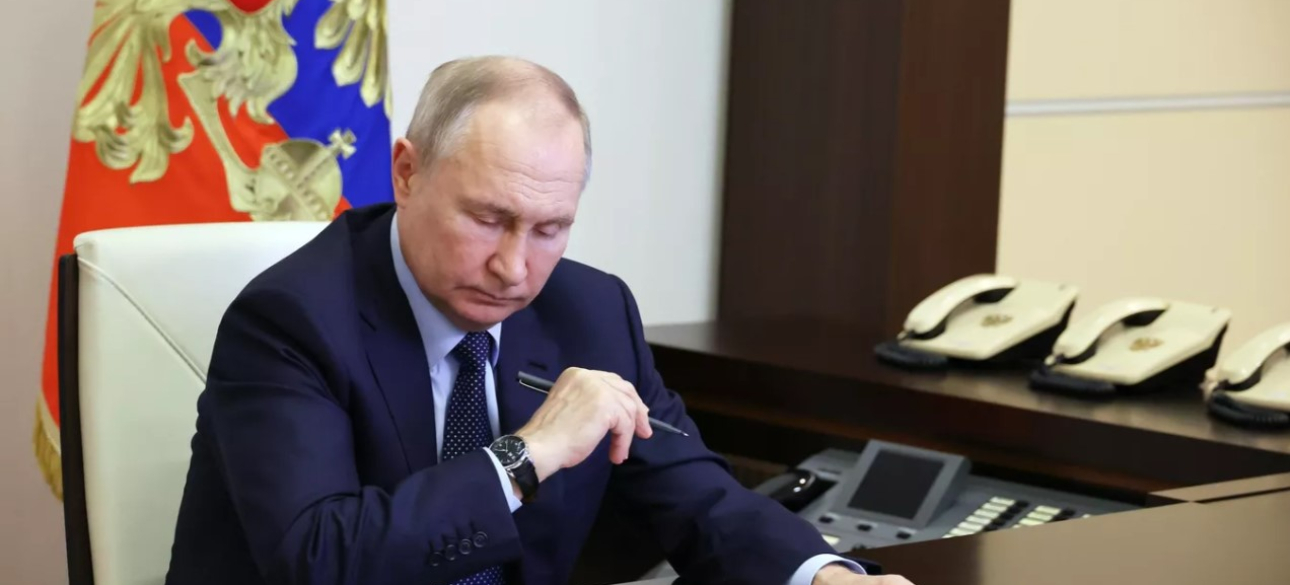
 By Natali Moss
By Natali Moss
16-year sentence of Evan Gershkovich, a 32-year-old Wall Street Journal reporter arrested in Russia last year on far-fetched accusations of espionage, gives us the main fact of modern Russia: if it is not denied by force, the Kremlin never evades arbitrary cruelty. After a telephone conversation last week, between Donald Trump and Vladimir Zelensky talks with Russia, it seems not far off.
However, those who seek agreement with Vladimir Putin should remember the viciousness of this person and his regime. This month, the Kremlin has been hesitant to strike at a children's hospital in the center of Kiev, far from any significant military goals. The rocket killed at least 42 civilians, including children, and interrupted surgery for saving lives. Meanwhile, more than 19,000 Ukrainian children were stolen from Russia's occupied territories of Ukraine and exported to Russia.
It is unknown whether they will ever see their relatives again. There is more and more evidence that Russia is using Ukrainian prisoners of war as a living shield in its so -called "meat attacks" - mass groups of people, sometimes even with wounded Russian soldiers on crutches, go against Ukrainian positions to cause fire on themselves And to shine their coordinates.
Almost all Ukrainian prisoners of war, surveyed by the UN Human Rights Monitoring Mission in Ukraine, were tortured in Russian captivity, including "repeated beatings, electric shocks, threats of execution, prolonged stay in stressful positions and imitation of executions," the group said. More than half of them have undergone sexual violence.
The regime without hesitation allowed Alexei Navalny to die in prison-a fate that probably awaits another opposition leader, Vladimir Kara-Murza, who was imprisoned in the Siberian correctional colony, despite the fact that he suffered from a progressive neurological disease. As a US citizen, Gershkovich may eventually be saved, as well as ALSU Kurmaven, Radio Free Europe journalist, arrested on the same far -fetched grounds when visiting her sick mother.
But if they survive, it is because the regime used them as a exchange coin, not from humanitarian or moral considerations. The deep immoral nature of Putin's regime matters. Victor Orban or Donald Trump, if he wins in November, must boldly negotiate the cessation of Russia's Tanger War against Ukraine, which is ongoing now. But no one should have the illusions that the Kremlin will negotiate honestly, or that it will be ready to fulfill its part of the agreement without serious obstacles.
Like Iran and North Korea, Putin's Russia has crossed Rubicon, which restore its status as a normal, responsible participant in the international system is impossible - at least without a serious change of its leadership. Of course, this does not exclude the dialogue or the possibility of termination of war through negotiations. However, this means that a steady agreement with Russia will have to be carried out for external coercion.
The Kremlin regime may temporarily stop hostilities, but it cannot be assumed that it will give up its ultimate goal: the subordination of Ukraine and the destruction of Ukrainian statehood. How can the United States and their allies conclude an agreement with a deeply immoral regime in Moscow? One word: restraint.
The 1994 Budapest Memorandum, a toothless obligation of the United States, Great Britain and Russia to guarantee the territorial integrity of Ukraine, did not bring any benefits to Ukraine in the face of Russian revisionism, and the Minsk agreements in 2015 did not stop the full -scale invasion of the Kremlin in 2022. NATO members, on the contrary, are safe, while the Alliance's commitment to collective defense is considered to be trusting.
Those who want to negotiate with Russia, in Ukraine or in the West should be ready to make more than just draw lines on the map. If the world does not want to see a larger and bloody repetition of the same scenario in a few years, a peace agreement between Ukraine and Russia should go side by side with Ukraine's accession to NATO or with the creation The desire to consider such an attack again. The author expresses a personal opinion that may not coincide with the editorial position.










All rights reserved IN-Ukraine.info - 2022